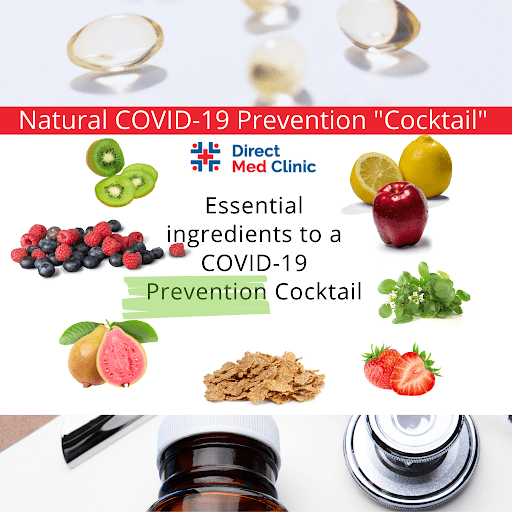
Table of Contents
1. Food and COVID
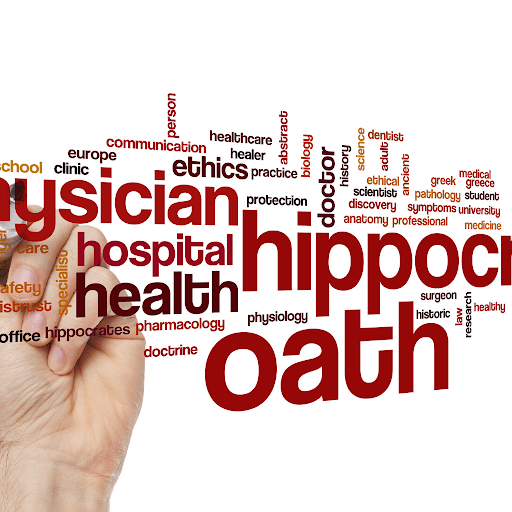
Hippocrates, father of “The Oath” by which physicians swear to keep their patients from harm and injustice before practicing medicine states in De Alimento, “In food excellent medicine can be found, in food bad medicine can be found; good and bad are relative.” Another famous quote attributed to Hippocrates is the well-known, “Let food be thy medicine.” Today, we use dietary supplements when obtaining the nutrients from its original source is less potent or bioavailable. However, did you know that many of the foods, spices, and herbs that are bioavailable and can help in prevention or mitigation of COVID-19 might already be in your kitchen cabinets? We’ve developed a table of supplements your body can use as a basic line of defense against infectious diseases during COVID times. You can download the PDF to take with you on your next grocery store run for a list of foods that can also help boost immunity.
2. The COVID-19 Prevention Cocktail
What is a COVID-19 Prophylaxis or Prevention Cocktail?
A prophylaxis cocktail is a combination of mostly vitamin supplements that when taken together may keep you from getting sick. The medical community has long studied the antiviral properties of vitamins, such as Vitamin C, and used experimental therapy for the prevention and treatment of certain diseases, such as COVID. This particular “cocktail” was developed by Dr. Paul Marik, Professor of Medicine and Chief of Pulmonary and Critical Care Medicine, Eastern Virginia Medical School in Norfolk, Virginia based on studies done before and after COVID-19 cases in China and around the world. This COVID cocktail may have a role in the prevention or mitigation of COVID-19 disease. It is inexpensive, non-toxic, and available over the counter.
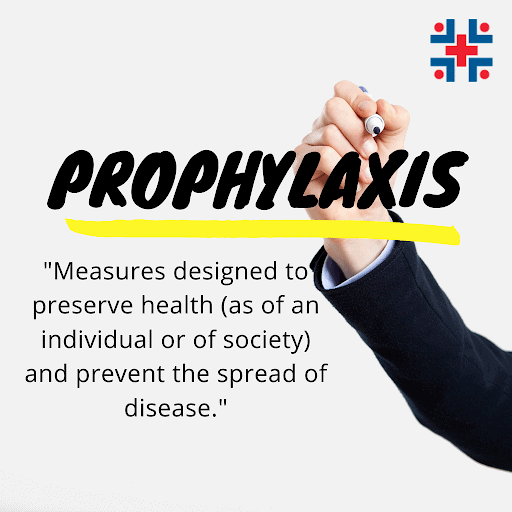
Prophylaxis: measures designed to preserve health (as of an individual or of society) and prevent the spread of disease.
COVID Prevention Cocktail
| Supplement | Amount | Frequency | Notes |
|---|---|---|---|
| Vitamin C and Quercetin | 500 mg and250-500 mg | Twice per day | |
| Zinc | 75-100 mg | Once per day | Zinc lozenges are preferred. After 1 month, reduce dose to 30-50 mg/day. |
| Melatonin (slow release) | Begin with 0.3mg | Once per day | Increase as tolerated to 2 mg at night |
| Vitamin D3 | 1000-4000 units | Once per day | |
| Famotidine | 20-40mg per day | Once per day | Optional |
Believe it or not, the method that we cook food can affect our absorption rate of the nutrient. A cup of boiled red bell peppers provides 231mg of Vitamin C, whereas a cup of cooked red bell peppers nearly halves the amount. Whether an herb is fresh or has been dried can also affect our absorption rate. Not all food sources contain the amount of nutritional value recommended in the COVID Prevention Cocktail in a reasonable serving size and therefore are not listed. However, “Quercetin might increase the number of mitochondria in muscle, reduce oxidative stress, decrease inflammation, and improve endothelial function (blood flow).” Effects of quercetin supplementation on endurance performance and maximal oxygen consumption: a meta-analysis
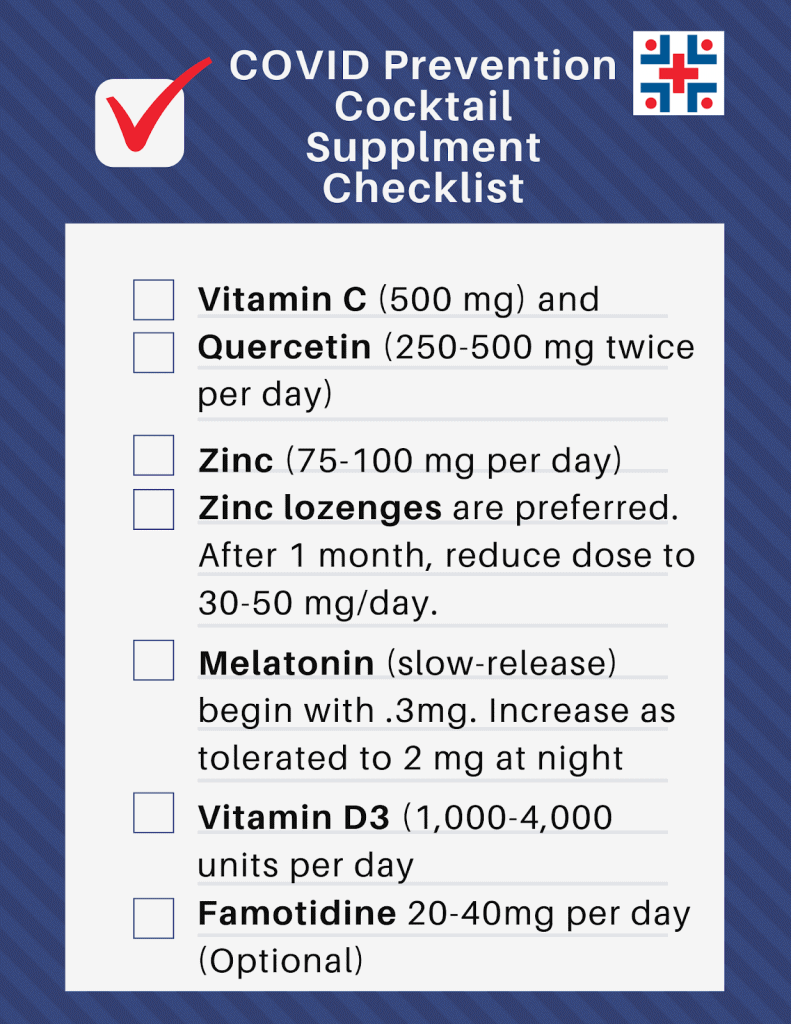
3. Vitamin C, Quercetin, and COVID-19
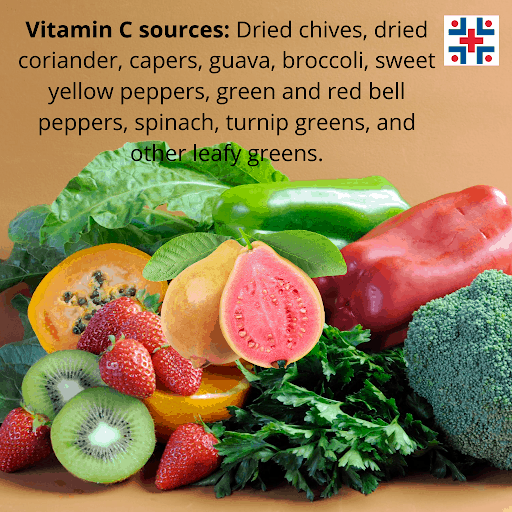
Vitamin C is best known for its antioxidant properties, being able to scavenge damaging reactive oxygen species, thus protecting the body’s cells and tissues from oxidative damage and dysfunction. However, the vitamin also has numerous other important functions within the body, many of which are known to support healthy immune function.
A new clinical trial to test high-dose vitamin C in patients with COVID-19.
Are there studies about Vitamin C and COVID-19? Yes, there are ongoing studies about Vitamin C and COVID-19. In early 2020, in Wuhan, investigators looked to see if Vitamin C can protect an individual from COVID-19 or minimize symptoms after contracting it. What is currently known is that during infection, vitamin C levels can become depleted and a person’s requirement for vitamin C increases as the severity of the infection increases. In critical cases, IV doses of Vitamin C are required in order to increase concentration in the body.
What is the recommended daily allowance (RDA) for Vitamin C? The FDA’s recommended daily value (DV) for an adult for Vitamin C is 90 mg. However, with age, Vitamin C requirements vary. Smokers should add 35 mg to each recommended amount, men 15 mg, and pregnant women 5-10mg. Vitamin C deficiency is not common, but Vitamin C can be increased for immune defense.
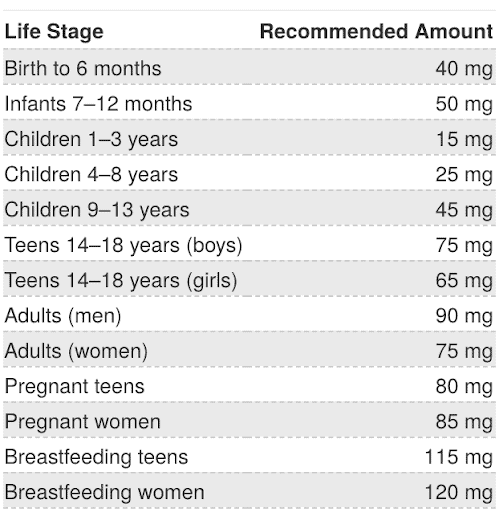
What is the recommended intake of Vitamin C suggested to prevent COVID-19?
Most people get enough Vitamin C in their daily diet and severe deficiency (less than 10mg daily) or scurvy is uncommon in normal populations. However, to possibly prevent infections like the virus causing COVID, it is recommended to take 500mg twice per day with Quercetin and the other supplements listed in this blog.
Where can I get Vitamin C?
Over-the-counter supplements at your nearest grocery store will likely carry Vitamin C in various forms. While citrus foods like oranges and grapefruit are well-known sources of Vitamin C, they are not the highest food sources of Vitamin C. Higher sources can be found in many vegetables like yellow, red and green peppers, and spinach. As for fruit, one guava of roughly 100 grams can provide twice as much vitamin C as an orange!
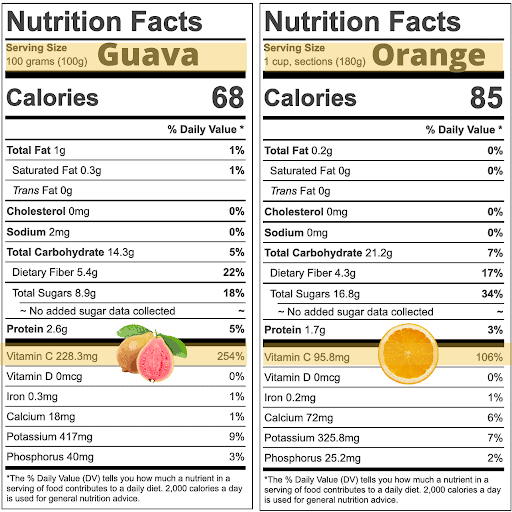
In this COVID Prevention Cocktail, it is recommended to take Vitamin C 500mg and Quercetin 250mg-500mg. Many foods are naturally high in Vitamin C. Shopping with this list in mind can help us increase our intake of Vitamin C.
Foods High in Vitamin C
| Foods High in Vitamin C | Vitamin C (mg) | Daily Value (DV) | Quantity |
|---|---|---|---|
| Sweet Yellow Peppers | 341.3mg | 379% | 1 pepper, large |
| Boiled Red Bell Peppers | 230.9mg | 257% | 1 cup, strips |
| Sautéed Green Bell Peppers | 203.6mg | 226% | 1 cup chopped |
| Mustard Spinach | 195mg | 217% | 1 cup, chopped |
| Red Bell Peppers (Cooked) | 172.6mg | 192% | 1 cup chopped |
| Sweet Red Bell Peppers | 152mg | 169% | 1 medium |
| Green Bell Peppers | 119.8mg | 133% | 1 cup, chopped |
| Cooked Mustard Spinach | 117mg | 130% | 1 cup, chopped |
| Hot Green Chili Peppers | 109.1mg | 121% | 1 pepper |
| Banana Peppers | 102.5mg | 114% | 1 cup |
| Broccoli (Cooked) | 101.2mg | 112% | 1 cup chopped |
| Brussels Sprouts (Cooked) | 96.7mg | 107% | 1 cup |
| Dried Coriander | 10.2mg | 11% | 1 tbsp |
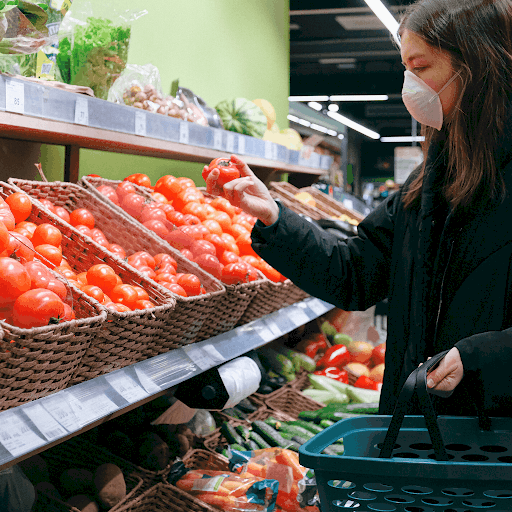
Did you know our clinic gives nutritional advice? Direct Med Clinic has a weight management program that is available to Direct Med Clinic members. Not only can we help you develop a shopping list, but we can give you a comprehensive health screening to help you develop your health goals and a plan to achieve them. Want more information? Contact us today to help set up your appointment.

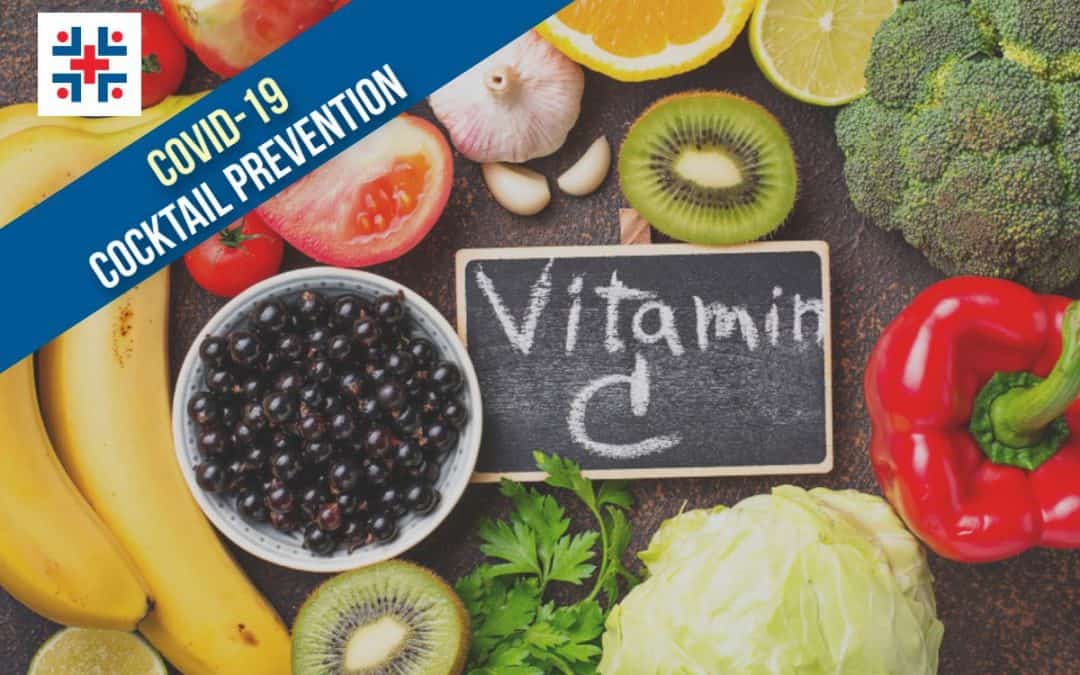
Recent Comments